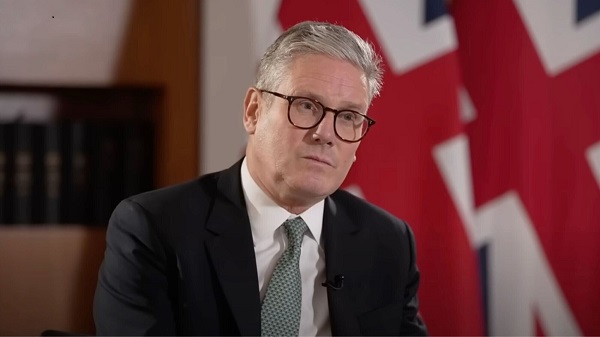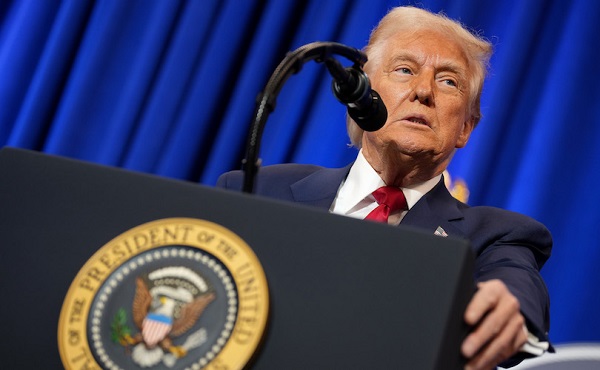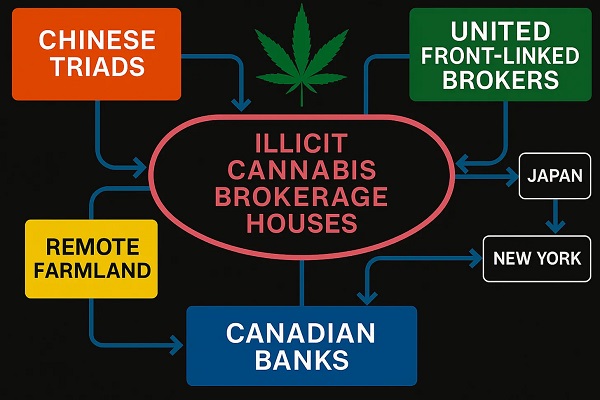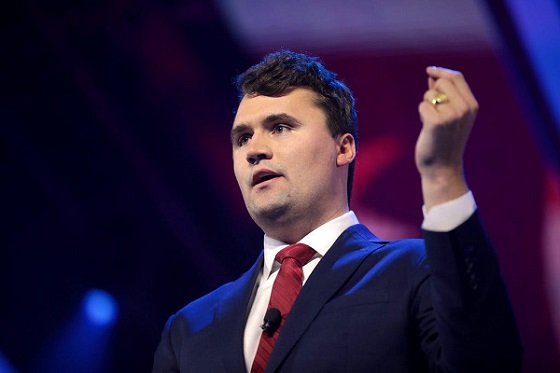Internet
Gov’t memo admits Canadians are shifting to independent news due to distrust of media, not Russian ‘bots’

From LifeSiteNews
A memo from Canada’s Department of Foreign Affairs admits that the rise of ‘alternative’ news sources is not due to Russian interference, as some members of the Trudeau Cabinet have claimed, but likely reflects ‘decrease in trust among traditional outlets.’
The explosive growth of Canadians shifting to alternative non-legacy media to obtain their news is not due to Russian “bots,” as some in the government and left-wing media claim, but reflects people’s distrust of entrenched media outlets, at least one government agency admitted.
A memo titled Foreign Interference And Right Wing Politics: The Canadian Context from Canada’s Department of Foreign Affairs said that the growth of so-called “alternative and far right ‘news sources’” is not due to Russian bots but is likely due to Canadians’ suspicion of “traditional outlets.”
Analysts put to rest claims made by some far-left media outlets that bots are somehow to blame for the rise of independent news media sites in Canada popular today, which include the Post Millennial, Rebel News, True North, LifeSiteNews, as well as a host of others.
According to foreign interference monitors at the Rapid Response Mechanism office, or RRM Canada, run by the department, “they tried and failed to corroborate allegations that conservative media in Canada were stoked by offshore agents,” according to Blacklock’s Reporter.
“RRM Canada observed no indication of false amplification and assesses the increased popularity of these sources is very likely both organic and domestic in nature,” read the memo.
The memo stated that the while the nature of the content is “domestic, the move away from traditional news sources may indicate a decrease in trust among traditional outlets among right leaning Canadians.”
“No such increased popularity has been observed among alternative or far left media outlets,” noted the memo.
The memo noted that sites such as the Rebel News Network had a larger social media footprint than established outlets such as the National Post or the Globe & Mail.
When looking to find claims that foreign agents were behind the rise of alternative media, the RRM analysts found no evidence that this is the case.
“Articles in The National Observer and Press Progress have made claims that conservative political discussions on social media are driven by inauthentic automated accounts, i.e. bots,” read the memo.
“While these stories are not necessarily inaccurate, Rapid Response Mechanism Canada notes foreign interference and covert influence campaigns exploit narratives from across the political spectrum.”
The memo of note was filed with counsel for Canada’s ongoing Commission on Foreign Interference.
Overall, the memo contradicted claims made by the cabinet of Prime Minister Justin Trudeau that Russian agents were the ones increasing messaging critical of the government.
In 2020, Canada’s then-Public Safety Minister and now-Finance Minister Dominic LeBlanc quipped to reporters that “Trolls and bots are dispatched to stoke anxiety and in some cases inflame debate around sensitive issues,” saying, “Their main goal is chaos.”
“We have seen how hostile state and non-state actors use information technologies to manufacture reality,” he claimed, adding, “Fake news not only masquerades as the truth, it masquerades as legitimate political debate.”
Canadian figures who are critical of the Trudeau government have been accused of being bankrolled by Russia. As reported by LifeSiteNews, Dr. Jordan Peterson recently demanded an apology from Trudeau after the Canadian prime minister accused him of being funded by Russian state media.
As reported by LifeSiteNews, Trudeau claimed U.S. media personality Tucker Carlson and Peterson are being funded by the state media outlet Russia Today. He also blamed Russia for “amplifying the chaos” surrounding the 2022 Freedom Convoy protests.
Trudeau made the claim last Wednesday under oath during testimony at the Foreign Interference Commission after he was asked about Russia’s alleged role in the Freedom Convoy.
The Foreign Interference Commission was convened to “examine and assess the interference by China, Russia, and other foreign states or non-state actors, including any potential impacts, to confirm the integrity of, and any impacts on, the 43rd and 44th general elections (2019 and 2021 elections) at the national and electoral district levels.”
Internet
How Google Quietly Shapes Human Behaviour and Thought

Behind convenience lies control, as invisible algorithms, DNA tracking, and blacklists reshape beliefs without notice.
This unsettling video explores the revelations of Dr. Robert Epstein, a Harvard-trained psychologist trained by B.F. Skinner and published in Nature. Once respected in academic circles, he drew the ire of powerful actors when he began asking difficult questions about freedom and technology. His research, whistleblower testimony, and leaked documents expose how Google evolved from a search engine into a system of mental manipulation: filtering results, harvesting DNA data, and quietly undermining free choice.
After publishing these findings, Dr. Epstein reported six incidents of threats and intimidation, a sign of just how dangerous his work had become to entrenched power.
The video above was produced by the channel Video Advice on YouTube: (Watch Original Here)
To learn practical ways to push back against the expanding surveillance grid, listen to my conversation with Hakeem Anwar, an expert in decentralized technology.
The Search Engine Manipulation Effect
In 2015, Dr. Epstein documented what he called the “search engine manipulation effect” (SEME). His experiments showed that simply reordering search results, placing favorable links higher and critical ones lower, could dramatically shift opinions. Among undecided voters, preferences moved by about 20%, with some controlled trials reaching 80%. The same effect appeared even on apolitical subjects, proving that it could influence judgment across a wide range of issues.
Nearly nine out of ten participants never realized their choices had been shaped. Replications across multiple countries confirmed the effect, demonstrating that whoever controls search rankings controls much of the political landscape. Later, Google whistleblower Zach Voorhies revealed that engineers had tools to apply or remove ranking bias with a single command, allowing the company immense control over the political landscape.
DNA, Listening Devices, and Data Harvesting
Dr. Epstein’s warnings extend beyond search manipulation. Google invested in the DNA testing company 23andMe and launched Project Baseline, a nationwide health data initiative. The system combined genetic information with behavioural patterns, while framing it as a service to improve health: mapping predispositions to illness, ancestry, and family ties. The darker side, however, is that whoever controls this data holds predictive power over entire populations.
A similar pattern appeared in consumer devices. In 2019, it was revealed that Google’s Nest products contained hidden microphones. These were never disclosed to buyers, yet the hardware sat silently in people’s homes, always on and always listening. When the discovery became public, Google insisted it was an oversight in their product specifications… merely an error in documentation.
Surveillance Origins and Blacklists
The roots of the google framework stretch back to the 1990s, when intelligence agencies like DARPA and the NSA funded early internet search tools. Their stated goal was tracking potential bomb-makers, as a matter of public safety, but it also laid the foundation for mass surveillance. Out of these early surveillance initiatives, Google’s PageRank algorithm was born. It was designed not only to rank websites by importance, but also to anticipate user intentions and predict what they were likely to click next.
In 2019, documents leaked by Zach Voorhies confirmed the existence of “blacklists,” “fringe ranking classifiers,” and other tools designed to control visibility. Instead of banning content outright, Google buries it—technically online but practically unseen. Employees are instructed to rely on their own “judgment” when deciding what content to suppress, with no clear standards or oversight. These individual choices are then used to train algorithms, embedding human bias and interests into systems that govern billions of searches.
Monitoring Google for Manipulation
Although Google faces antitrust lawsuits, Dr. Epstein argues that these cases are designed to distract from its deeper operations. Courts avoid confronting surveillance, psychological manipulation, and DNA profiling, leaving untouched the most consequential areas and the tools most likely to be used for control.
To address this oversight, or intentional deceit, Dr. Epstein created the “monitoring project.” It deploys a network of software agents that mimic human browsing, recording what Google displays in real time. The system generates verifiable evidence of bias as it happens, revealing whether certain viewpoints are promoted, buried, or erased.
He warns that Google’s influence is no longer limited to advertising or web browsers. Its true power lies in shaping thought itself. By determining what information people encounter first, or whether they encounter it at all, the company places itself directly inside the process of decision-making. The real struggle is over what he calls “consciousness dominance”: the power to guide how individuals form opinions, how societies make choices, and ultimately, how reality is perceived.
Awareness of the Mechanisms of Control
Dr. Epstein warns that what began as a search engine has evolved into a behavioural weapon. Google not only has the power to organize information but to engineer perception, quietly rewriting beliefs. His warnings remind us that freedom demands vigilance. If we do not question what we are shown, we will continue to see our political landscape, our health choices, and even our grasp of truth rewritten, unaware that it is even happening.
Related Material
|
|
Subscribe to Dr Trozzi.
For the full experience, upgrade your subscription.
International
Trump to Confront Starmer Over UK Free Speech Laws During State Visit

Trump’s tour is reportedly set to double as a rebuke of Britain’s approach to online expression.
|
President Donald Trump’s state visit to Britain this week is shaping up to be less about ceremonial pageantry and more about a bitter dispute over censorship and freedom of speech.
Prime Minister Keir Starmer had hoped to use the meeting at Chequers to press for relief from American steel tariffs and to focus on Ukraine and Gaza, but Washington insiders say Trump intends to put Britain’s clampdowns on speech at the very top of the agenda.
The president will land on Tuesday evening. He will attend the usual state functions, including a carriage procession at Windsor, a banquet hosted by King Charles, and a wreath-laying at the tomb of Queen Elizabeth II before heading to Chequers on Thursday for what now promises to be a fraught meeting.
The free speech battle is not new. According to The Independent, Trump previously “berated Keir Starmer over free speech” during private talks at his Turnberry resort in the summer, according to a source close to the president.
That same source added, “There is absolutely no doubt that free speech is going to be one of, if not the top issue, when the two hold talks.”
Fueling the row are recent cases that have drawn international attention: Lucy Connolly’s imprisonment over a tweet, the armed police arrest of comedy writer Graham Linehan at Heathrow, and the UK’s sweeping Online Safety Act.
Reform UK leader Nigel Farage has already carried the argument to Congress, urging Washington to punish Britain for criminalizing online speech.
|
-

 International2 days ago
International2 days agoTrump sues New York Times for $15 billion over ‘malicious, defamatory’ election coverage
-

 Crime1 day ago
Crime1 day agoFrom Vancouver to Oklahoma: Canadian Murder Case and CCP ‘Police Station’ Links Align U.S. Testimony and The Bureau’s PRC Pot Investigations
-

 Alberta2 days ago
Alberta2 days agoEducation negotiations update: Minister Horner
-

 Addictions2 days ago
Addictions2 days agoNo, Addicts Shouldn’t Make Drug Policy
-

 Christopher Rufo2 days ago
Christopher Rufo2 days agoCharlie Kirk Did It All the Right Way
-

 Internet2 days ago
Internet2 days agoHow Google Quietly Shapes Human Behaviour and Thought
-

 COVID-192 days ago
COVID-192 days agoNew Study Obliterates the “Millions Saved” COVID Shot Myth
-

 Bruce Dowbiggin1 day ago
Bruce Dowbiggin1 day agoCarney’s Housing Meltdown: Building A Mystery






